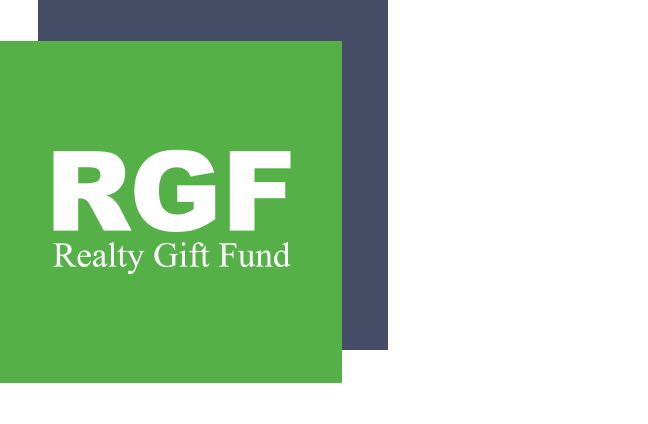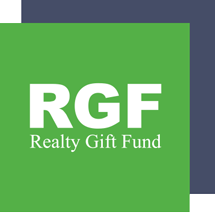Types of Donations
Realty Gift Fund exclusively accepts gifts of real estate… of any type… from anywhere… excluding timeshares. Properties with a net market value (after deducting any donation costs) of $150,000 will be considered on a deal-by-deal basis, but there is no limit on maximum value. The average market value of properties accepted last year averaged $640,000. At any value, all gifts must be marketable.
An outright gift of real estate is equal to 100% of the ownership, whether the donor is a single entity or comprises multiple parties who will share in charitable benefits according to their respective shares. As an example, let’s review the story of one of our donors (we’ll call her Rachel), a single woman who owned a rental property on the west coast.
At the time of our introductory call, Rachel’s rental had a tenant whose lease was scheduled to expire in 90 days, and Rachel desired to use this asset to fulfill her charitable interests which, at this point in life, were receiving more of her focus. Rachel’s cash and liquid investments were earmarked for her retirement and considered easy assets to hand down at the end of her life. But the rental property was located a few hours away, needed work, and the tenant signaled his intent to move out, all of which added up to a burden she wished to avoid for herself and her heirs.
Instead, Rachel was attracted to converting the value of the investment home to her charitable purposes by converting its value to a donor advised fund from which she could make grants to her favorite causes for years to come.
She was referred to Realty Gift Fund by her local community foundation, which sponsors donor advised funds but does not accept real estate. RGF is known nationwide as the specialized nonprofit that accepts real estate, delivers tax benefits to its donor, uses its own cash for repairs to make properties market ready, and hires local brokers and escrow teams to represent the sale.
RGF evaluated the property’s condition, set a budget and a date to start repairs immediately after the tenant’s departure, and funded $28,000 of total donation/sale costs while Rachel paid only for her appraisal, which established her tax deduction. The property was meticulously prepared, photographed and listed with the local MLS service, which attracted 11 showings and 3 offers, one above list price. The sale closed 33 days later.
The sale closing proceeded smoothly, funds were received at RGF late the same day, and a wire to Rachel’s donor advised account was initiated the next morning.
RGF is actively evaluating Outright Gifts of real estate from individuals and corporations. Call us if you’d like to learn more. The call is free and a decision to proceed is always yours.
A Bargain Sale is a transaction created by the IRS in 1917 to promote philanthropy, comprising a cash sale for a portion of a property’s Fair Market Value and a charitable donation for the difference. In a Bargain Sale, the owner is both seller (for the cash portion) and donor (for the donated portion).
A Bargain Sale contains three elements: 1) a Qualified Appraisal to establish the property’s Fair Market Value; 2) a Partial Cash payment for less than the FMV; 3) and a Charitable Donation for the difference.
The Partial Cash Payment is negotiated and often used to pay off debt, other obligations of the property, or to provide the seller with personal funds. The Seller pays capital gain taxes on the partial cash payment.
The Charitable Donation is eligible for a tax deduction against the donor’s Adjusted Gross Income for the year of the contribution and, if necessary, for five additional years. In a Bargain Sale involving real estate, the tax deduction may be applied against a maximum of 30% of the donor’s AGI in each of the six years or until the deduction is completely used, whichever comes first. The donor avoids all capital gain obligations on the charitable contribution portion.1
With thoughtful planning, a tax advisor may be able to determine the balance between the cash payment and gift portions to create an offset between the taxes owed (on the cash payment) and taxes saved (on the gift).1
RGF is actively seeking Outright Gifts of real estate, has the strategic funds to make negotiated Partial Cash Payments under Bargain Sale arrangements, and is actively seeking real estate gifts from individuals and corporations.
1DISCLAIMER
Tax information provided herein is general in nature and does not represent actual tax advice or intend to propose actual tax outcomes. Interested parties must obtain advice from their own qualified independent tax professionals
A Partial Interest gift of real estate is a donation that conveys less than the entire property to a qualified nonprofit, resulting in the donor and nonprofit becoming joint owners. The nonprofit’s share is conveyed by deed which states the percentage of ownership the donor is gifting. Thereafter, each party has an undivided interest in the entire property according to their respective shares.
The gift portion passes to the nonprofit free of capital gain and entitles the donor to a tax deduction against adjusted gross income (AGI) for the appraised value of the partial interest. The appraised value of a partial interest may be subject to a “minority interest discount”1.
During the joint ownership period, each owner is obligated for its share of expenses and capital needs, and each is entitled to its share of income and other revenue. Because nonprofits strive to avoid “unrelated business taxable income” which is subject to a special UBTI tax, the gift of a partial interest works best if the property is free of debt.
When the property is sold to a third-party buyer, each owner pays its respective share of selling costs and prorations and receives its share of net proceeds. Because Realty Gift Fund is a qualified 501(c)3, the nonprofit world receives all RGF’s portion of the net proceeds. RGF is one of those nonprofits, and it retains a small share of the total and grants the balance to other nonprofit(s) according to the Partial Interest Donation Agreement signed with the donor.
An advantage of the partial interest gift is that the donor may be able to reinvest its share of sales proceeds in a tax-deferred exchange by directing the donor’s interest to a qualified intermediary, according to the IRS’s Section 1031 rules. If so elected, the donor may avoid and defer all capital gain/depreciation recapture tax related to the entire transaction.1
1DISCLAIMER Tax discussions provided herein are general in nature, not offered as actual tax advice, and not intended to propose any possible tax outcomes. Interested parties must obtain advice from their own qualified independent tax professionals.

